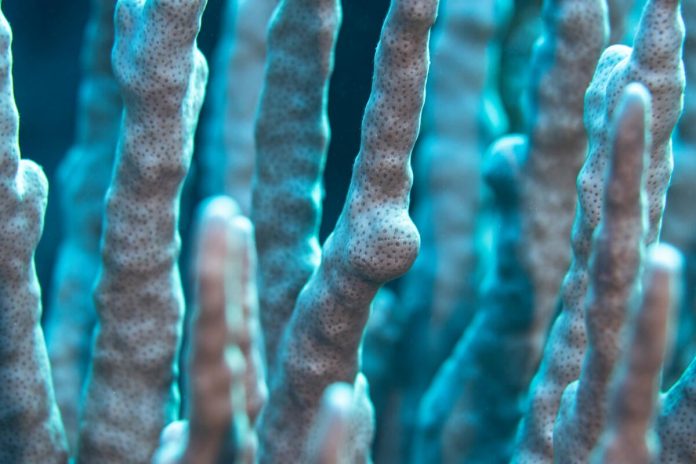Australia’s oceans are heating at an alarming rate. In 2024, sea surface temperatures reached record highs, marking the hottest year on record for our surrounding waters.1 This isn’t just an abstract statistic—it’s a crisis unfolding beneath the waves, threatening marine life, coral reefs, and the livelihoods of those who depend on healthy oceans.
Why Are Our Oceans Heating Up?
The primary driver is human-induced climate change. The burning of fossil fuels—coal, oil, and gas—has led to a significant increase in greenhouse gas emissions, trapping heat in the atmosphere. The vast majority of this excess heat is absorbed by the ocean, causing surface temperatures to rise at an unprecedented rate.2
Rising sea surface temperatures contribute to phenomena such as marine heatwaves and coral bleaching. These disruptions are becoming more frequent and severe, pushing marine ecosystems past their limits.
Climate change is also disrupting ocean currents, which play a crucial role in regulating global temperatures. This could have serious implications for Australia and the Pacific, for example the Atlantic Meridional Overturning Circulation (AMOC), a key system regulating global temperatures, is slowing down due to climate change. If it worsened and collapsed, this could produce a La Niña-like pattern over eastern Australia—bringing more intense rainfall and flooding.3
Closer to home, the East Australian Current now extends further south, creating an area of more rapid warming in the Tasman Sea, where the warming rate is now twice the global average.4
What Happens When the Ocean Gets Too Hot?
1. Coral Bleaching and Reef Degradation
Australia’s Great Barrier Reef has experienced widespread coral bleaching events in recent years. Coral bleaching occurs when corals, stressed by elevated sea temperatures, expel the symbiotic algae that provide them with energy and vibrant colours. Without these algae, corals can die, leading to the degradation of reef ecosystems that support a vast array of marine life.5
2. Marine Heatwaves and Mass Die-Offs
Marine heatwaves—periods of abnormally high sea temperatures—have become more frequent and intense. A recent marine heatwave off the coast of Western Australia caused the deaths of approximately 30,000 fish, an event scientists have linked directly to climate change. The extreme temperatures depleted oxygen levels and disrupted marine food chains, leaving fish and other marine life struggling to survive. Research indicates that such events are now up to 100 times more likely due to climate change.6
3. Disruption of Marine Ecosystems
Warmer oceans can alter the distribution and abundance of marine species. Many fish and other marine organisms are shifting their ranges toward cooler waters, disrupting existing ecosystems and affecting fisheries. Others that can’t migrate or adapt to changing temperatures are likely to die. These changes can have cascading effects throughout the food web, impacting species from the smallest plankton to the largest predators.4
4. Sea Level Rise and Coastal Impacts
As ocean temperatures rise, seawater expands, and melting polar ice contribute to sea level rise. Rising sea levels increase the risk of coastal flooding, erosion, and habitat loss, threatening coastal communities and ecosystems.7 Pacific Island nations are already experiencing the severe effects of climate change: rising sea levels, extreme storms, tidal inundation, food and water insecurity, and displacement are becoming all too common. These impacts threaten not just physical survival, but the very culture and identity of Pacific communities.
The Solution: Protecting Our Oceans
To address these challenges, Greenpeace advocates for:
- Global Oceans Treaty: Protecting at least 30% of the world’s oceans by 2030 through a network of international marine sanctuaries can help safeguard biodiversity and allow ecosystems to recover.
- Reducing Greenhouse Gas Emissions: Transitioning away from fossil fuels toward renewable energy sources is crucial to mitigate climate change and its impacts on the oceans.
- Preventing Overfishing and Pollution: Implementing sustainable fishing practices and reducing pollution, including plastic waste, are essential steps to maintain healthy marine environments.
Australia is home to unique and diverse marine ecosystems, and we have a responsibility to protect them. The Global Ocean Treaty, agreed upon in 2023, provides a framework for creating ocean sanctuaries in international waters. We urge the Australian government to ratify this treaty and take bold action to protect our oceans.
We need urgent action from Environment Minister Tanya Plibersek and Foreign Minister Penny Wong to ratify the Global Ocean Treaty and protect critical marine habitats, including the South Tasman Sea and Lord Howe Rise.
Sign the petition now to demand ocean protection before it’s too late.
The ocean is our greatest ally in the fight against climate change. Often called the lungs of the Earth, the ocean produces around 50% of the planet’s oxygen, regulates global temperatures, and absorbs vast amounts of carbon dioxide. But with rising temperatures, acidification, and pollution, its ability to sustain life—both beneath the waves and above—is under serious threat. The time to act is now.
- https://theconversation.com/its-official-australias-ocean-surface-was-the-hottest-on-record-in-2024-249277
- https://climate.nasa.gov/vital-signs/ocean-warming/
- https://theconversation.com/a-huge-atlantic-ocean-current-is-slowing-down-if-it-collapses-la-nina-could-become-the-norm-for-australia-184254
- https://www.gbrmpa.gov.au/the-reef/reef-health/climate-change
- https://www.theguardian.com/environment/2025/feb/05/deaths-of-30000-fish-off-wa-coast-made-more-likely-by-climate-change-research-finds




